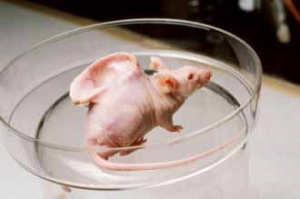I previously wrote a blog about Nightmares vs. Dreams Pt. 1, so naturally, there is a part 2 to this little series. As a recap of my last blog, I discussed the different types of nightmares we experience: release nightmares, recurring nightmares, healing nightmares, and the recurring theme/different subject nightmare. Nightmares are generally associated with bad experiences and unhappy memories. There is so much information about this that I find interesting because I have so many dreams that I just wonder why I dreamed that. I’m sure there are others that would like to know why they dream certain things too.
Not all dreams have to be “happy” per se, a lot of them can be really confusing or not make sense. A lot of the time dreams are just made up of our innermost thoughts about the past day or the future. Like nightmares, these dreams are stuff that you worry about, excited about, etc. Except it takes a less disturbing spin.
Another one of our classmates wrote a blog similar to mine about different foods affecting what you will dream about. They stated that a lot of cheeses caused people to have nightmares, as well as dairy products, spicy foods and some sweets. I think that there is a possibility that foods can make you dream different things, but I would have to be fully cognizant of my dreams at the moment. Half the time I do not even remember my dreams, only the bad ones.
Comparing dreams to nightmares, “dreams are to guide you through life, they are like your GPS”(Hammed), when nightmares are negative in many peoples’ minds. The only correlation that they share is that they both hold meaning and may hold some positive aspects, one holding more than the other. ESP dreams alert us when someone or something is in need of help or attention. Alchemy of Dreams. Simon S. Godfrey explains how to understand your dreams. There are three parts to understanding a dream revelation: 1). the identity of the source 2). the identity of the dreamer and 3). the relationship between the dreamer and source. There must be consistency in the dreams with similar contexts recurring in a dream.
I found an actual case study of this one girl following 4 dreams after breaking up with her ex. All of the dreams have a recurring theme based around her ex.
Dream 1: Girl is walking with lamp to her ex’s work, then switches to them both at home wishing they would have told each other how they felt. Reality: The dreamer wanted her ex to prove how he felt about her. She is at his work so obviously she is formulating a plan to bump into him and see if he misses her, The symbolism is the lamp because it represents how she is in the dark about his feelings.
Dream 2: Is at school, then is transported to the hospital and finds out her friend is dying. Reality: She realizes the relationship is dying and needs to do something about it. Symbols: Hospital- emotional pain she is feeling, School- is learning a harsh lesson in life.
DReam 3: Driving her brother home, then her ex’s brother became her brother and started telling her stuff about her ex and his journal in his bedroom. Reality: Realizes she hasn’t been looking at her ex’s point of view and being way to selfish. Symbols: Brother- her pov Ex’s brother- his pov.
DReam 4: Knocks on the door to talk to ex, his mother opens door and says he isn’t home, but then dreamer says she is lying. Reality: dreamer started writing letter to ex which she she did mail and opened communication. Symbols- house- ex-boyfriend knock on the door- taking action and confronting the situation. Dream Case Study.
In this case study, I do not think that you would need more evidence to be persuaded that dreams do have meaning. In terms of nightmares vs. dreams, dreams seem to be more thought-provoking/ reality check type dreams.
I have never had someone interpret my dreams, but I’m pretty sure that I can decipher them. Last night I had a dream about my family and my pets. My pets ran away and we needed to get them back and my dad and sister were nowhere to be found. I saw a barren forest with nothing it and I instantly became worried. What this means I think is that I care deeply about my family and the barrenness maybe means I feel alone.
I know that this was pretty heavy stuff, but what I want you to take from my studies of nightmares and dreams is that they do have a purpose no matter how much you may want to avoid it. They are not always going to be positive, but for those small pockets of good dreams enjoy them. I would also encourage you to have a pen and paper next to you when you sleep if you are interested in deciphering your dreams.






